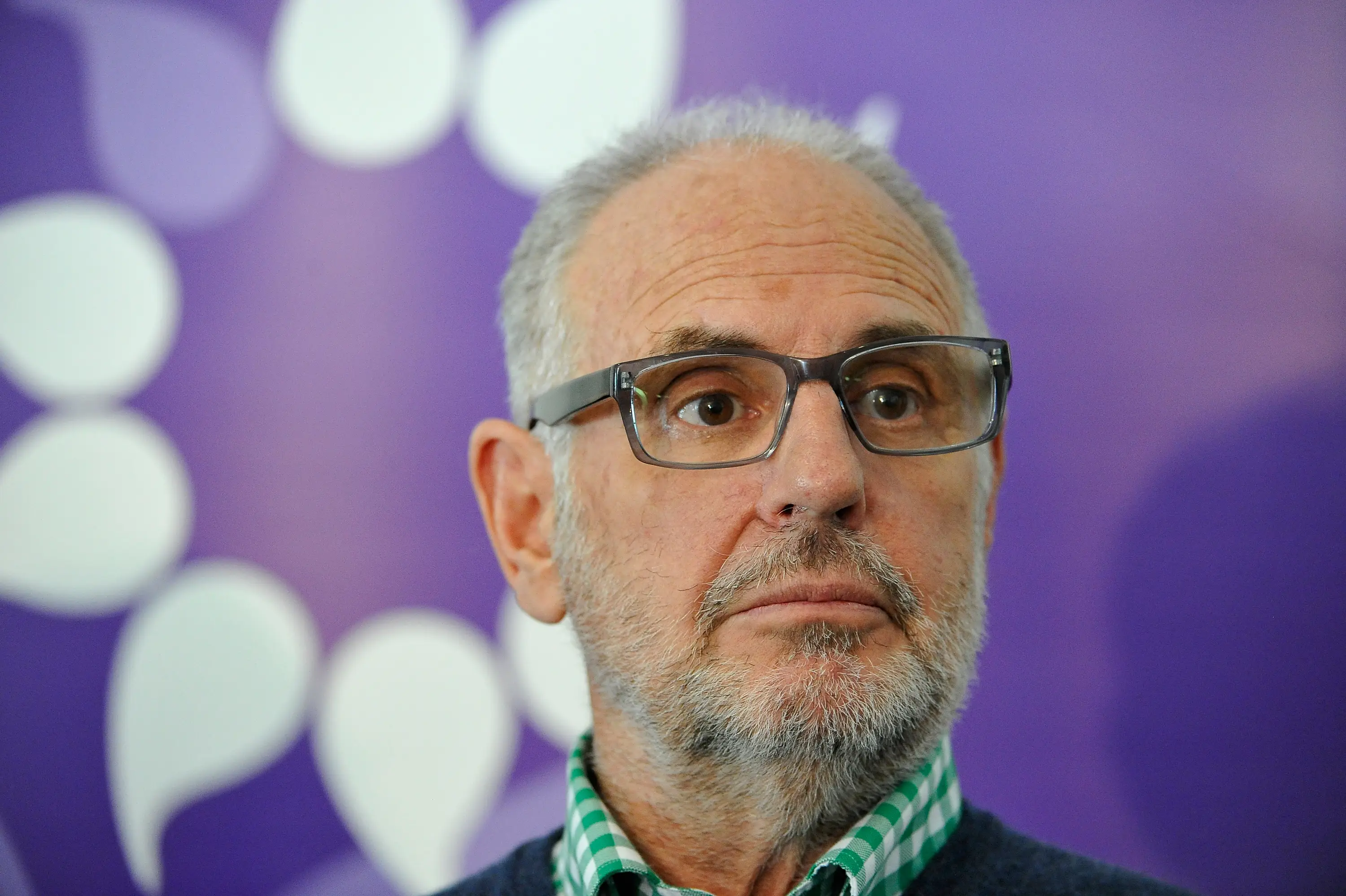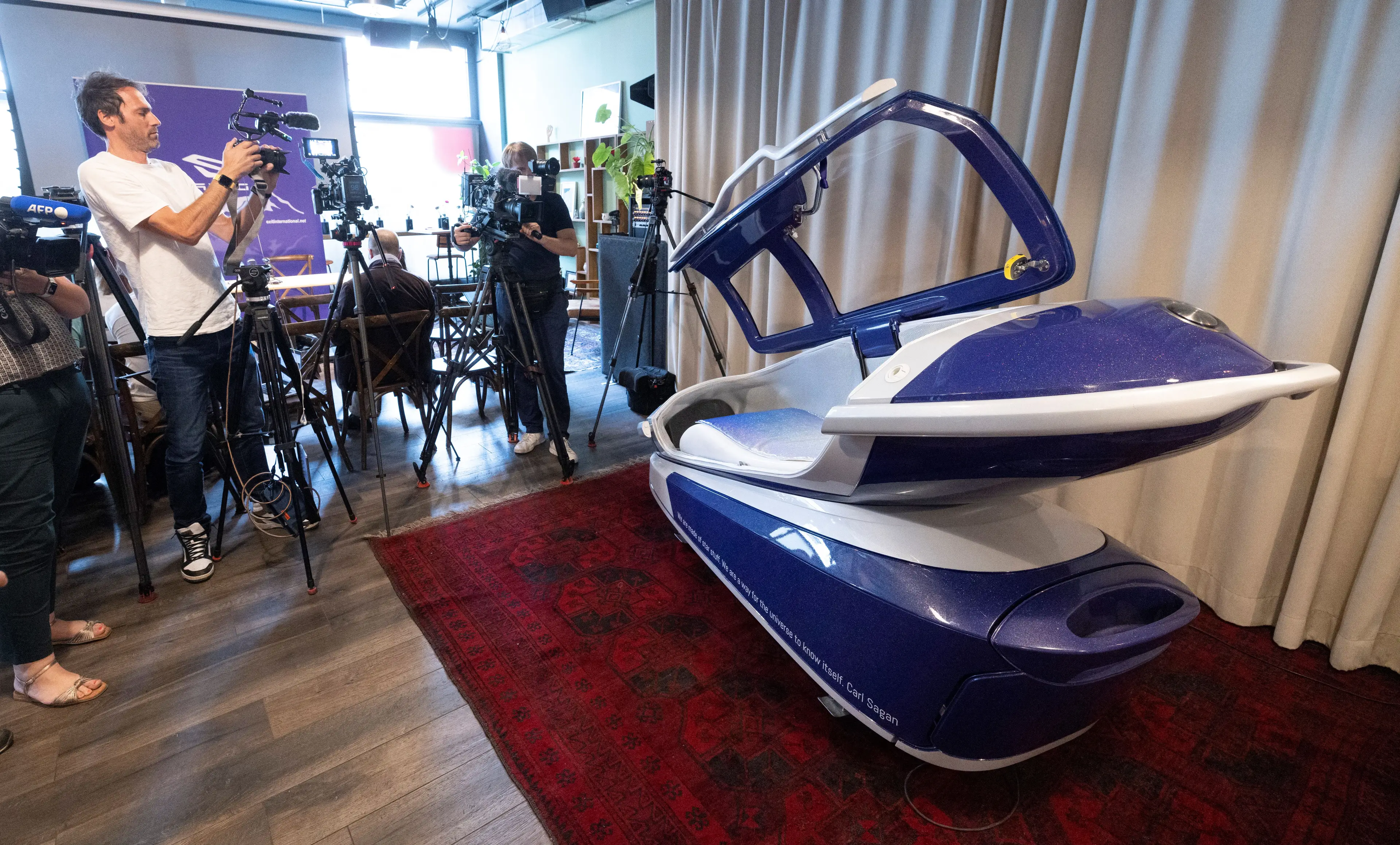
Warning: This article contains discussion of suicide which some readers may find distressing.
Dr Philip Nitschke famously said that an individual would need to be 'of sound mind' to meet the criteria of his eerie invention, the suicide pod, which would allow participants to end their life on their own terms.
In the months that followed, the Swiss medic - who has since been nicknamed 'Dr Death' - was inundated with questions surrounding protocol when an individual battling dementia or similar diseases wishes to undergo euthanasia.
And now, Nitschke has combated the concern with a controversial new proposition, which would see those suffering mentally-deteriorating illnesses given the chance to end their life, even when they're incapacitated.
Advert

Nitschke is, first and foremost, the mastermind behind the dubious Sarco 'suicide pods', a collection of 3D-printed devices that were introduced to the public earlier this year.
The chilling new technology allows the person inside to push a button which triggers the release of nitrogen gas, starving the participant of oxygen.
As we say, however, one of the main arguments against the pods in the latter circumstances is whether a person is in a mental state to consent to end their life.
Despite Nitschke previously saying that all individuals hoping to use the pods must be of 'sound mind', he has since contrived a means of getting around this criteria.

The medic has since been experimenting with a brand new project - a switch which will be planted on an individual, with access to deadly drugs.
According to Wired, Nitschke hopes that individuals will one day be able to use the switches, which will release drugs into the bloodstream exactly one year after having them implanted.
In the minutes prior to the drugs being released, he says the switch will create a ticking sound, which the individual can turn off - preventing the release - if they've changed their minds.
The idea is that, if the person's dementia or Alzheimer's has progressed to the point where they can't remember what the ticking is for, or how to turn the device off, then the drugs will be released, as per their original wishes.
In fact, the doctor is so set on his idea, that he reportedly plans to test it for himself, using saline solution.
Nitschke's innovations in assisted dying have caused waves of debate, as the first patient to try his 'suicide pod', a 64-year-old woman from America, passed away last month.
A handful of others have since signed up to use the pod - which was developed by the Swiss euthanasia-focused firm The Last Resort - including British couple Peter and Christine Scott, the former of whom is battling physical ailments, while the latter has been diagnosed with early-stage vascular dementia.
If you’ve been affected by any of these issues and want to speak to someone in confidence, please don’t suffer alone. Call Samaritans for free on their anonymous 24-hour phone line on 116 123.
Topics: Health, Life, Mental Health, News, Real Life, True Life